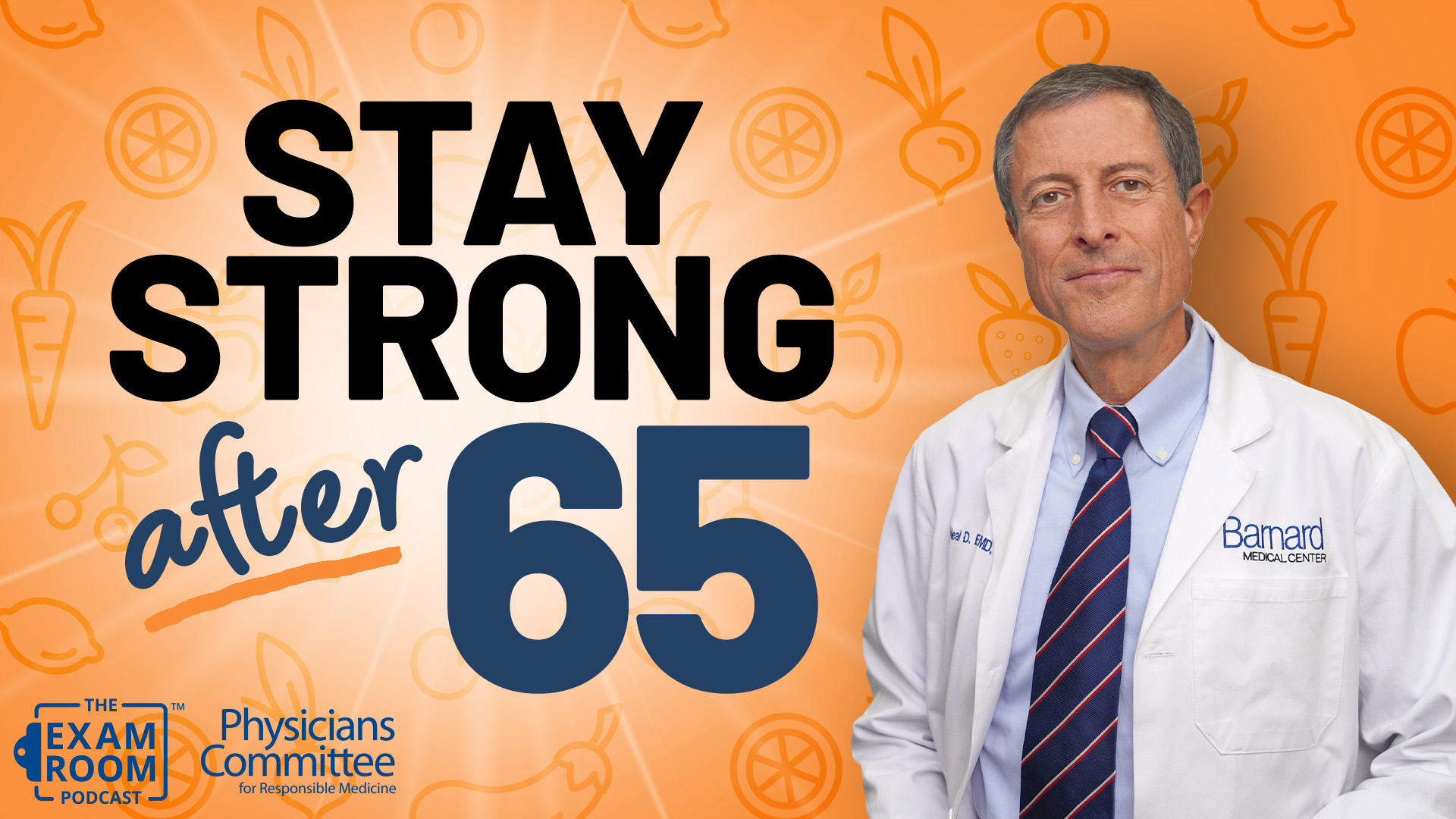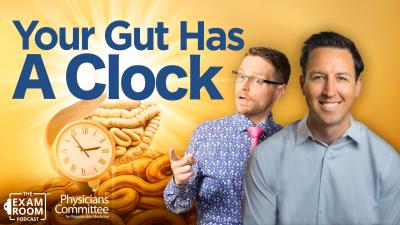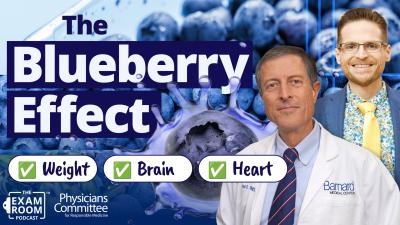Senior Health: How To Age Well After 65 | Dr. Neal Barnard

Physical and mental decline isn't inevitable. Even into your elder years, you have the power to improve your health, and age well.
In this empowering episode, Dr. Neal Barnard joins Chuck Carroll to share science-backed strategies for eating well after 65. He explains why it’s never too late to adopt a healthier lifestyle, what nutrients matter most for seniors, and how a plant-based diet can protect against common age-related conditions.
In this episode of the Exam Room, you'll learn:
- The key supplements seniors need to stay healthy
- Symptoms of nutrient deficiency to watch out for
- Why changing your diet, even into your 80s, can extend your life
- What foods protect memory and cognition
- Why avoiding meat matters for seniors
This episode is sponsored by The Gregory J. Reiter Memorial Fund, which supports organizations like the Physicians Committee that carry on Greg’s passion and love for animals through rescue efforts, veganism, and wildlife conservation.
If you feel like you’ve raised your health IQ, please leave a 5-star rating and nice review on Apple Podcasts or Spotify.
Episode FAQs
Why is a plant-based diet good for seniors?
It lowers risks for heart disease, cancer, and diabetes, while also supporting cognition, energy, and gut health. Switching to a plant-based diet can even help clear arteries, reverse diabetes, improve energy and help you achieve a healthy weight.
What supplements should seniors take?
Dr. Neal Barnard says everyone should take B12. Seniors may also benefit from vitamin D (especially with low sun exposure), iodine for thyroid health, and algae-based omega-3s if levels are low.
What are the symptoms of nutrient deficiencies in seniors?
B12 deficiency can cause anemia, nerve damage, and higher dementia risk. Iodine deficiency may show up as fatigue, hair or skin changes, or feeling “run down.”
Is it safe to switch diets later in life?
Yes! But medications may need adjustment because improvements can happen quickly. Always involve your doctor.
Key Takeaways
- It’s never too late to change your health outcomes. Seniors can improve health and quality of life through diet and lifestyle changes.
- Heart disease, diabetes, and memory decline can respond to better nutrition.
- Supplements matter for seniors. B12 is essential, while vitamin D, iodine, and omega-3s may also support senior health.








